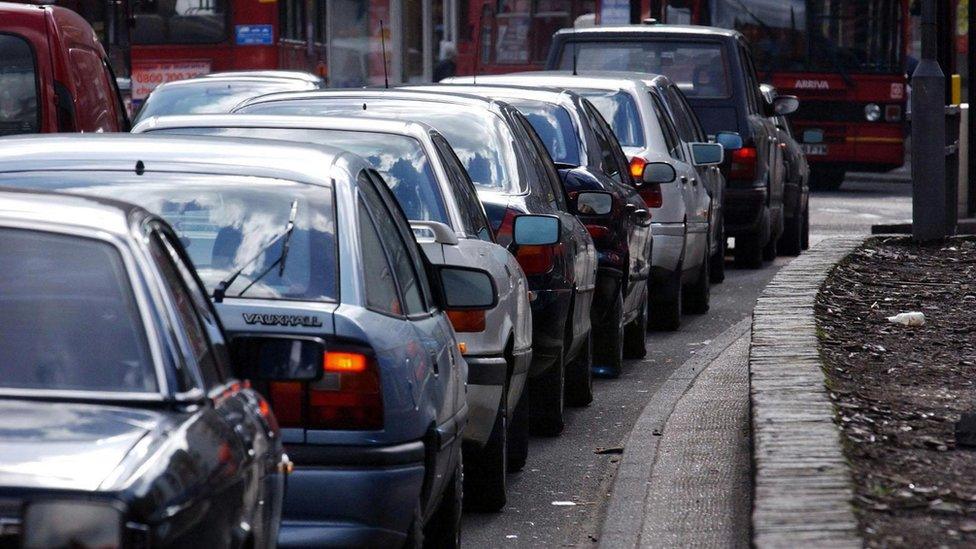Road offence 'reduction' may be due to police cuts - MPs
- Published

A sharp fall in the number of recorded motoring offences may be due to falling traffic officer numbers rather than an improvement in driving standards, MPs say.
The Transport Select Committee warned that police cuts would stop some offences being detected.
The number of specialist road policing officers in England and Wales fell from 7,104 to 4,356 between 2005 and 2014.
But the Home Office said the police had the resources they needed.
'Growing concern'
As the number of specialist road policing officers has fallen, there has been increasing use of technology to enforce traffic laws, the report said.
"For enforcement to be successful and for educational campaigns to be convincing there must be the likelihood that offenders will be apprehended.
"There is a growing concern that the lack of specialist dedicated road traffic officers means that 'minor' offences such as careless driving cannot be effectively detected and enforcement action taken."
The total number of offences detected on roads in England and Wales went from 4.3 million in 2004 to 1.5 million in 2014, the report said.
However, the number of offences resulting in a fatality - which will always be recorded - did not fall.
"This is significant as this suggests that the reduction in overall offences that are recorded does not represent a reduction in offences actually being committed," the report said.
'Unwelcome'
Labour MP Louise Ellman, who chairs the committee, said: "The fall in overall road offences does not reflect an improvement in driving."
The report said the government was right to focus on the "fatal four" - the main causes of road deaths - drink-driving, speeding, mobile phones and not wearing a seat belt.
It urged the Department for Transport to ensure detection rates for these offences were high, "whether through specialised road traffic police officers or by detection technology".
It recommended research into whether educational courses for poor driving had the required deterrent effect.
"By use of specialist officers, and appropriate use of technology, enforcement can be used alongside education which can make road users aware that serious driving offences will be detected," it added.
RAC spokesman Pete Williams said: "The sharp decline in roads policing officers appears to be having the very unwelcome effect of leading to fewer people being caught for illegal activity."
But the Home Office said: "Her Majesty's Inspectorate of Constabulary has been clear that there is no link between police resources and crime levels and effective roads policing is dependent on a range of factors, from better driver awareness to increased use of fixed penalty notices."
It said the enforcement of traffic offences was an operational matter for the police.